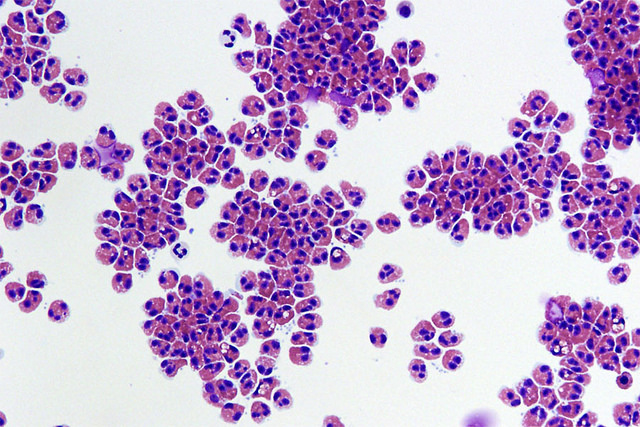Glycoprotein IIb/IIIa blockers reduce procedure-related thrombotic complications of percutaneous coronary intervention, and the risk of death and myocardial infarction in patients with acute coronary syndromes. The effect on risk of death and myocardial infarction is particularly apparent in patients undergoing early percutaneous coronary interventions. We did a randomized, mutlicenter trial to study the effect of the glycoprotein IIb/IIIa blocker abciximab on patients with acute coronary syndromes who were not undergoing early revascularization.
Glycoprotein IIb/IIIa blockers reduce procedure-related thrombotic complications of percutaneous coronary intervention, and the risk of death and myocardial infarction in patients with acute coronary syndromes. The effect on risk of death and myocardial infarction is particularly apparent in patients undergoing early percutaneous coronary interventions. We did a randomized, mutlicenter trial to study the effect of the glycoprotein IIb/IIIa blocker abciximab on patients with acute coronary syndromes who were not undergoing early revascularization.We enrolled 7800 patients who were admitted to hospital with chest pain and either ST segment depression or raised troponin T or I concentrations. 2598 were randomly assigned placebo, 2590 an abciximab bolus and 24 h infusion, and 2612 an abciximab bolus and 48 h infusion: all patients received aspirin and either unfractionated or low-molecular-weight heparin. The primary endpoint was death or myocardial infarction at 30 days after randomization. Analysis was by intention to treat.There were no drop-outs. 209 (8.0 %) patients on placebo. 212 (8.2 %) on 24 h abciximab, and 238 (9.1%) on 48 h abciximab died or had a myocardial infarction before day 30 (odds ratio 1.0 [95% CI 0.83 – 1.24], for differences between placebo and 24 h abciximab, and 1.1 [0.94 – 1.39] for difference between placebo and 48 h abciximab). The lack of benefit from treatment with abciximab was consistent in most subgroups investigated; in particular, no benefit was seen in patients with raised cardiac troponin T or I concentrations at enrolment, although these patients did have strongly increased risk of subsequent events. Bleeding rates were low, but increased with abciximab, particularly when continued for 48 h. Additionally, thrombocytopenia was more frequent with abciximab than with placebo.Although the explanations for our findings are unclear, this study indicated that abciximab is not beneficial as first-line medical treatment in patients admitted with acute coronary syndromes.(Source: European Society of Cardiology: Acute Coronary Syndromes Trials)
All content and media on the HealthEngine Blog is created and published online for informational purposes only. It is not intended to be a substitute for professional medical advice and should not be relied on as health or personal advice. Always seek the guidance of your doctor or other qualified health professional with any questions you may have regarding your health or a medical condition. Never disregard the advice of a medical professional, or delay in seeking it because of something you have read on this Website. If you think you may have a medical emergency, call your doctor, go to the nearest hospital emergency department, or call the emergency services immediately.







